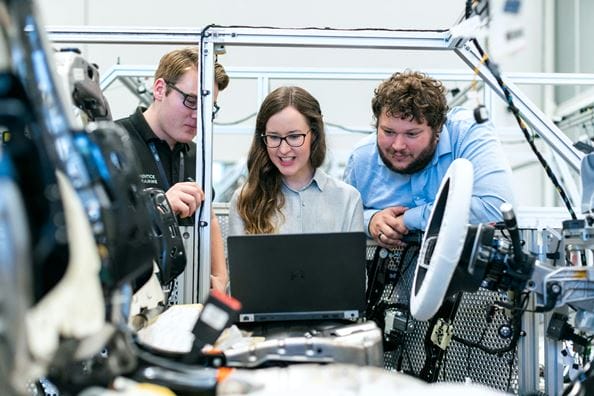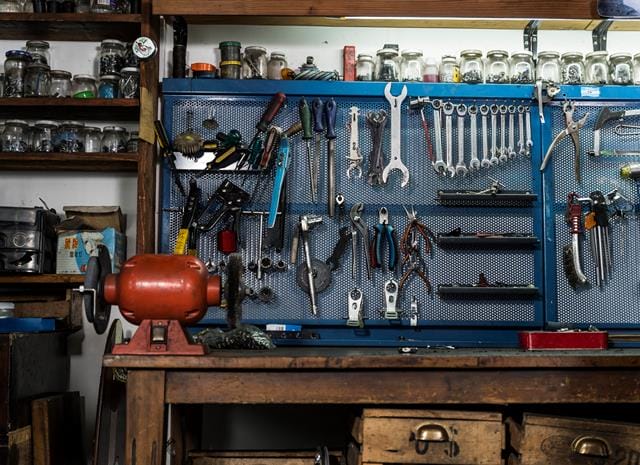Do you get uncomfortable and strained while driving? Do you struggle to reach the pedals or see over the steering wheel? Many short drivers face this problem. A good ergonomic support can change everything. It makes driving more comfortable and safe. The right car seat cushion offers the lift and support you need.
But, with so many choices, picking the best can be hard. We’ll show you why a good car seat cushion is key. We’ll also tell you what to look for in the best car seat cushion for you.

Understanding the Importance of Car Seat Cushions
Choosing the right car seat cushion can make driving better for short drivers. It gives them the height and support they need. This makes driving safer and more fun.
What Are Car Seat Cushions?
Car seat cushions add support and comfort for drivers. They’re made from materials like memory foam, gel, and inflatable ones. Each type has its own benefits. For example, a memory foam car seat cushion molds to fit your body perfectly.
These cushions do more than just make you comfortable. They also help improve your driving posture and cut down on fatigue during long trips.
Benefits for Short Drivers
Car seat cushions are a big help for short drivers. They give the height needed to see over the steering wheel and reach the pedals easily. An adjustable car seat cushion can be customized to fit your needs, ensuring you get the best support and visibility.
They also help keep your driving posture right, easing the strain on your back and legs.
How Cushions Improve Comfort and Safety
A lumbar support car seat cushion boosts comfort by supporting your lower back. This cuts down on fatigue and makes you safer by letting you control the car better.
Also, by making visibility and comfort better, car seat cushions make driving safer. They help you stay alert and react faster to dangers on the road.
Key Features to Look for in a Car Seat Cushion

Choosing the right car seat cushion is key for short drivers. It boosts both comfort and safety while driving.
Height Increase
A car seat cushion should increase your height. This is crucial for seeing over the wheel and dashboard. A compact car seat cushion with height adjustment is a big help.
Material and Comfort
The cushion’s material and comfort are also vital. It should support your back and legs and feel good on long drives. Look for breathable materials that offer good support. A memory foam cushion is a great choice for comfort and support.
Non-Slip Bottom
A non-slip bottom is essential. It keeps the cushion in place, ensuring support and safety. This feature is key for maintaining the best driving position.
In short, short drivers should look for a cushion that boosts height, is comfortable, and has a non-slip bottom. These features improve your driving experience greatly.
Types of Car Seat Cushions Available
The market has many car seat cushions for short drivers. They differ in material, design, and function. This gives drivers many choices based on their needs.
Memory Foam Cushions
Memory foam cushions are known for their customized support and comfort. They’re made from polyurethane foam that molds to your body’s heat. This creates a fit that’s just right for you.
- Provide excellent support and pressure relief
- Conform to the body’s shape for a customized fit
- Available in various densities and thicknesses
Gel Cushions
Gel cushions offer a cooling effect great for long drives. They’re filled with gel that spreads your weight evenly. This reduces pressure points.
- Provide a cooling effect to prevent overheating
- Help distribute weight evenly to reduce pressure
- Often used in conjunction with other materials for enhanced comfort
Inflatable Cushions
Inflatable cushions are flexible, letting drivers adjust the height and firmness as they like. They can be inflated or deflated, making them handy for drivers who value flexibility.
- Adjustable height and firmness for customized support
- Portable and easy to store
- Can be used in various vehicles
When picking a car seat cushion, think about what you need and like. Whether it’s memory foam, gel, or inflatable, the right one can make driving better for short drivers.
How to Choose the Right Car Seat Cushion
Finding the perfect car seat cushion can seem hard. But, by looking at a few important things, you can pick the right one. The right cushion can really improve your comfort and safety while driving.
Consider Your Vehicle Type
Every car is different, so think about what you drive. A compact car seat cushion is great for small cars where space is tight. But, if you have a bigger car, you might have more room for a larger cushion.
Assess Your Height and Build
Your height and body shape matter when choosing a cushion. If you’re shorter, you’ll need a cushion that lets you see and reach everything easily. An adjustable car seat cushion is a good choice because it can be customized to fit you.
Try Before You Buy
It’s a good idea to try a cushion before you buy it. This is very important if you’re looking for something with lumbar support. Trying it in your car will help you see if it’s the right fit for you.
By thinking about these points and trying different cushions, you can find one that makes driving better. It will give you the comfort and support you need.
Installation Guide for Car Seat Cushions
A well-fitted car seat cushion is key for short drivers. It ensures comfort and safety on the road. Installing one is easy but needs care for the best results.
Step-by-Step Installation Process
To install a car seat cushion, just follow these steps:
- Put the cushion on the driver’s seat, making sure it’s centered and fits the seat well.
- Adjust it to fit your body right, without blocking the seat belt or controls.
- Use straps or non-slip materials to keep it in place while driving.
For a memory foam car seat cushion, let it expand fully before use. This ensures it offers the best support and comfort.
Adjusting the Cushion for Optimal Comfort
After installing, adjust the ergonomic car seat cushion to your liking. Think about these points:
- The cushion’s height and angle should support your thighs and help your posture.
- It should feel good against your skin and last long with regular use.
- A low profile car seat cushion is great for cars with little seat adjustment or for those who want a slight upgrade.
Driving comfort experts say, “A well-adjusted car seat cushion can greatly cut down driver fatigue on long drives.” (
Source: Driving Comfort Experts
Maintenance Tips for Your Cushion
To keep your car seat cushion in top shape, follow these tips:
| Maintenance Task | Frequency | Benefits |
| Cleaning | Weekly | Keeps it clean and hygienic |
| Checking Condition | Monthly | Makes sure it stays supportive and comfy |
| Storage | When not in use | Protects it from damage and extends its life |
By keeping up with these tips, you’ll enjoy a safer and more comfortable drive with your car seat cushion.
Popular Brands of Car Seat Cushions for Short Drivers
Driving can be more comfortable for short people with the right car seat cushion. Many brands are making high-quality, comfy, and safe cushions for petite drivers.
Everlasting Comfort
Everlasting Comfort is known for its adjustable car seat cushions for all sizes. Their cushions are comfy and last long, thanks to their durable materials.
- Made from high-density foam for superior comfort
- Adjustable straps for a secure fit
- Breathable mesh cover for enhanced airflow
ComfiLife
ComfiLife has some of the best car seat cushions for short drivers. Their cushions offer great comfort and support, making long drives easier.
- Gel-infused memory foam for optimal support
- Non-slip bottom to prevent shifting during use
- Machine washable cover for easy maintenance
Zuzu
Zuzu is known for its petite driver car seat cushions. Their cushions are designed to make driving more comfortable and safe for shorter drivers.
- Ergonomically designed to promote good posture
- High-quality materials for durability
- Easy to install and adjust
Short drivers can find the perfect car seat cushion by checking out Everlasting Comfort, ComfiLife, or Zuzu. Each brand offers something special for their needs.
Price Range for Quality Car Seat Cushions

Car seat cushions for short drivers come in many prices. They fit different budgets and tastes. Knowing the price ranges helps you choose wisely.
Budget-Friendly Options
If you’re watching your wallet, there are affordable car seat cushions. They cost between $10 and $30. They offer basic comfort and support, even if they lack fancy features.
- Basic materials such as foam or fabric
- Simple design without advanced features
- Adequate for occasional use or temporary needs
Mid-Range Choices
Mid-range car seat cushions strike a balance between cost and quality. They usually cost between $30 and $60. These cushions use better materials and might have lumbar support or adjustable straps.
- Improved materials such as memory foam or gel
- Enhanced comfort and support features
- Suitable for regular use
Premium Cushions Worth the Investment
If you’re ready to spend more, premium car seat cushions are worth it. They cost $60 or more. These cushions are made with top-notch materials for the best comfort and support.
- High-grade materials for durability and comfort
- Advanced features such as cooling or heating functions
- Ideal for frequent or long-duration driving
Customer Reviews and Recommendations
Reviews from customers who have used car seat cushions offer valuable insights. They help short drivers make informed choices. By looking at others’ experiences, short drivers can understand what to expect from a product.
Top-Rated Cushions by Users
Many car seat cushions have received high praise for their comfort and effectiveness. For example, the ergonomic car seat cushion from Everlasting Comfort is known for its support and back pain relief. The memory foam car seat cushion from ComfiLife is also praised for its customized comfort.
| Product | User Rating | Key Features |
| Everlasting Comfort Ergonomic Cushion | 4.5/5 | Excellent lumbar support, breathable material |
| ComfiLife Memory Foam Cushion | 4.7/5 | Customized fit, pressure relief |
| Zuzu Low Profile Cushion | 4.3/5 | Compact design, non-slip bottom |
Common Complaints and Solutions
Some users have complained about discomfort during long drives and the cushion slipping. To fix these issues, manufacturers have introduced non-slip materials and adjustable designs. For example, low profile car seat cushions are designed to stay in place without blocking the driver’s view or movement.
- Non-slip materials to prevent the cushion from sliding
- Adjustable designs to customize the fit
- Breathable materials to enhance comfort during long drives
Real-Life Experiences from Short Drivers
Many short drivers have seen big improvements in comfort and safety with car seat cushions. For example, one user said the ergonomic car seat cushion helped with back pain during long commutes. Another user liked the memory foam car seat cushion for easier pedal and steering wheel access.
“I was skeptical at first, but the ergonomic car seat cushion has made a huge difference in my driving experience. My back no longer hurts, and I feel much more comfortable behind the wheel.”
– Emily R.
Safety Considerations When Using a Car Seat Cushion
When using a car seat cushion, safety is key, even more so for shorter drivers. These cushions can make driving more comfortable. But, it’s important to use them in a way that keeps you safe.
Airbag Compatibility
One major safety point is making sure the cushion works with your car’s airbags. If it doesn’t, it could mess with the airbag’s ability to protect you in an accident.
To ensure airbag compatibility, look for cushions made to work with airbags. Some brands will tell you if their cushions are safe with airbags.
Proper Seat Belt Adjustment
Adjusting your seat belt right is also crucial. With a cushion, make sure the belt fits well over your body. A bad fit can increase your risk of getting hurt in a crash.
- Make sure the lap belt sits low on your hips and pelvis.
- The shoulder belt should be in the middle of your shoulder and chest, not your neck.
Cushion Stability During Driving
How stable the cushion is while driving is also important. A cushion that moves can be distracting and uncomfortable. This might make you drive less safely.
To maintain stability, pick a cushion with a non-slip bottom or one made to stay put. Always check if the cushion is still in place while you’re driving.
| Safety Feature | Description | Benefit |
| Airbag Compatibility | Cushions designed to work with airbag systems | Ensures airbag effectiveness |
| Proper Seat Belt Adjustment | Correct positioning of the seat belt | Reduces risk of injury |
| Cushion Stability | Non-slip or secure cushion design | Prevents distraction and discomfort |
Care and Maintenance for Your Cushion
To keep your lumbar support car seat cushion in top shape, regular care is crucial. A well-maintained cushion not only feels great but also boosts safety on the road.
Cleaning Instructions
Keeping your car seat cushion clean is vital for hygiene and to stop bacteria and smells. A damp cloth works well for everyday cleaning. For stubborn stains, a gentle soap mix might be needed. Always check the care label to avoid harming the material.
Spot cleaning is best to stop moisture from getting into the cushion’s core. If your cushion has a removable cover, wash it as the maker suggests. This keeps your compact car seat cushion smelling fresh.
Lifespan and When to Replace
The life of your car seat cushion varies based on its material, how often you use it, and how well you care for it. A good cushion can last 2 to 5 years. Look out for signs like losing shape, feeling less comfy, or seeing wear and tear.
For petite driver car seat cushion users, watching your cushion’s condition is key. It affects your driving comfort and safety.
Tips for Storage and Transport
Proper storage of your car seat cushion can make it last longer. Store it in a cool, dry spot, away from sunlight to avoid damage.
- Use a breathable storage bag to stop moisture buildup.
- Avoid folding or squishing the cushion too much, as it can harm its shape.
- If moving your cushion, make sure it’s secure to prevent damage or shifting.
By following these care and maintenance tips, your car seat cushion will stay comfy, effective, and long-lasting.
Alternatives to Car Seat Cushions for Short Drivers
Drivers who find it hard to reach the pedals or see over the wheel have other options. Car seat cushions are popular, but they’re not the only way to make driving better and safer.
Adjusting the Driver’s Seat
Adjusting the driver’s seat is a simple yet effective solution. Many cars today have seats that can be adjusted to fit the driver. By tweaking the seat height, tilt, and lumbar support, short drivers can get a more comfy and safe driving spot.
Key adjustments to consider:
- Seat height: Make sure your feet can easily reach the pedals.
- Seat tilt: Adjust it to support your thighs and keep your posture right.
- Lumbar support: Tailor it to keep your lower back’s natural curve.
Steering Wheel Extenders
Steering wheel extenders are great for short drivers. They help reach the wheel comfortably, which is key for a good driving position.
Benefits of steering wheel extenders include:
- Improved reach: Easier to hold the steering wheel.
- Enhanced control: Better steering precision.
- Reduced strain: Lessens arm and shoulder effort.
Foot Pedal Extensions
Foot pedal extensions are a smart choice for short drivers. They’re installed on the pedals to make them easier to use.
Advantages of foot pedal extensions:
- Increased accessibility: Easier pedal operation.
- Improved safety: Better vehicle control.
- Customizable: Can be adjusted or removed as needed.
Exploring these alternatives can help short drivers find the best solution. It can make driving more comfortable and safe.
Conclusion: Finding Your Ideal Car Seat Cushion
Finding the perfect car seat cushion is key for short drivers. It ensures a comfy and safe drive. Look at height increase, material, and a non-slip bottom to make a good choice.
When looking for the best cushion, test different ones. Brands like Everlasting Comfort, ComfiLife, and Zuzu have many options. Reading reviews and knowing the price helps too.
Key Considerations
Think about your car, height, and build when picking a cushion. Make sure it fits with your car’s airbag system and seat belt.
Testing and Maintenance
Try out cushions to find the most comfy one. Clean and check the cushion often to make it last longer.
By following these tips, short drivers can have a better driving experience. Choose a cushion that makes you feel good and safe on the road.
FAQ
What is the best car seat cushion for short drivers?
For short drivers, the best cushion offers height, comfort, and support. Look for ones with memory foam or gel. These materials mold to your body and support your back.
How do I choose the right car seat cushion for my vehicle?
Choose based on your vehicle’s seat, your height, and what you like. Try different cushions and read reviews to find the perfect one for you.
Are inflatable car seat cushions a good option for short drivers?
Inflatable cushions are great for short drivers because they adjust to fit you. But, they might not last as long as other materials.
Can a car seat cushion improve my driving safety?
Yes, a cushion can make driving safer. It lets you sit comfortably, see over the wheel, and stay in good posture. This cuts down on fatigue and boosts your reaction time.
How do I maintain my car seat cushion?
To keep your cushion in good shape, follow the cleaning guide from the maker. Check it often and store it right when not using. This keeps it comfy and supportive for longer.
Are there any car seat cushions designed for petite drivers?
Yes, there are cushions made just for petite drivers. They’re lower and use materials for extra comfort and support.
Can I use a car seat cushion with a lumbar support feature?
Yes, cushions with lumbar support are great for short drivers. They add comfort and help keep your back straight while driving.
What is the average price range for a quality car seat cushion?
Quality cushions vary in price. You can find affordable ones for about $20. Mid-range options cost between $30-$60. And premium ones can be over $100.
Guest post written for Car Blog Writers by Alex Car.








